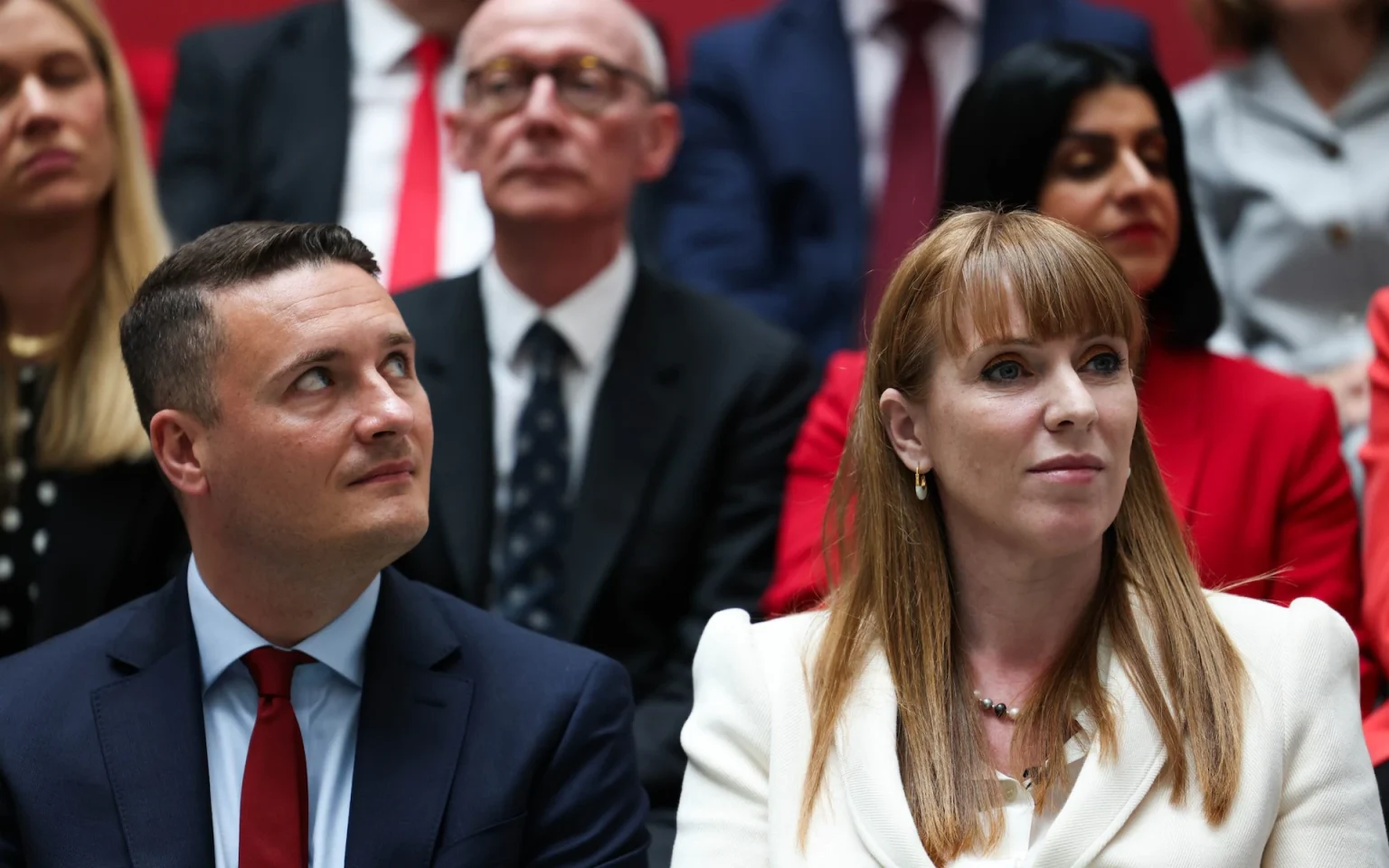Angela Rayner, the Deputy Prime Minister, has been accused of altering election spending rules in a way that could disadvantage her main Labour leadership rival, Wes Streeting. Critics warn that her proposed changes may reopen a loophole that could benefit pro-Gaza candidates, including those aligned with Jeremy Corbyn’s new party.
Kevin Hollinrake, Conservative Party chairman, condemned the move, saying it risks “fuelling divisive and sectarian politics” and appears motivated by internal Labour conflicts.
Ms Rayner has announced plans to scrap the current ban preventing organisations from registering simultaneously as a campaign group and a political party. Under existing rules, this dual registration is prohibited, as it effectively increases the legal spending limit that campaigners can use in individual constituencies.
This loophole was notably exploited by Liberal Democrat activists in the 2019 general election to target pro-Brexit Conservative candidates such as Dominic Raab. The Tory government closed the loophole in 2022 by introducing the ban on dual registration.
Mr Hollinrake warned that reopening this loophole could be weaponised by pro-Gaza campaigners aiming to influence close races in the next election. In a letter to Ms Rayner, he highlighted Wes Streeting’s vulnerable position in Ilford North, where he won by just 500 votes in the last general election. At that time, Streeting narrowly defeated independent pro-Palestine candidate Leanne Mohamad.
Hollinrake accused the Deputy Prime Minister of using the rule change to undermine her leadership rival, stating:
“These changes risk fuelling divisive and sectarian politics and create a massive loophole allowing extremists to distort elections. It is astonishing that the government department responsible for community cohesion is enabling this.”
Talk of a Labour leadership challenge against Sir Keir Starmer has been circulating in Westminster after the party’s difficult first year in power. Any future contest is expected to pit Ms Rayner, representing Labour’s left wing, against the more centrist Mr Streeting.
Rumours of Ms Rayner preparing a bid for the leadership intensified following reports about a leaked tax memo published by The Telegraph. Meanwhile, Mr Streeting has bolstered his profile by resisting demands for significant pay rises from junior doctors, and he has publicly pledged to defend his seat despite his slim majority.
Current election rules limit third-party campaign groups to spending £700 per constituency. Registered political parties, however, can spend significantly more between £16,000 and £20,000 depending on constituency size. Allowing dual registration would enable campaign groups to legally spend up to £20,700 in targeted areas.
Hollinrake warned that the loophole, combined with the rise of digital campaigning, could be exploited to influence election outcomes. In his letter, he specifically noted the potential for Islamist-leaning organisations to use the rule change to target specific MPs.
“Had these rules been in place during the 2024 election, an additional £17,420 could have been spent against Wes Streeting in hyper-negative campaigning, potentially costing him his seat,” Hollinrake wrote.
He added that such “sock puppet” tactics where aligned groups campaign under different names are a real threat and part of a broader alliance between the hard-left and Islamist factions.
In response, a spokesperson from the Ministry of Housing, Communities and Local Government defended the planned changes, saying the ban unfairly excluded smaller parties from democratic participation.
“The ban on dual registration excluded legitimate smaller parties from participating in our democracy as they had previously been able to. We will correct this so parties can campaign as they have done for many decades, but our changes will not allow campaigners to abuse spending limits and game the system,” the spokesman said.



